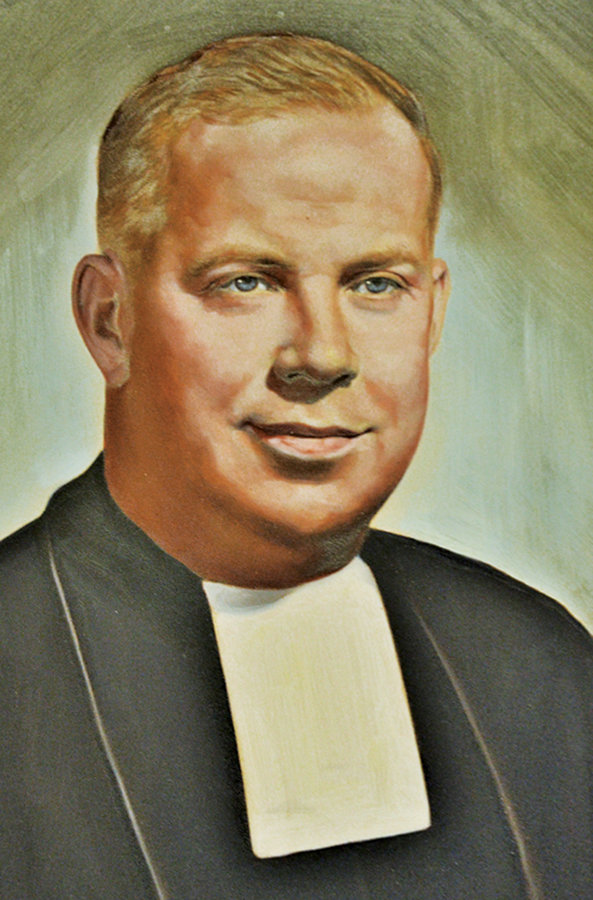You probably wouldn’t expect the head of a Catholic school to say that she “knocks the hell out of poetry.” But that’s what Alice Miesnik declared, as she chronicled her path to Marist High Head of School. She started in 1987 as an English teacher, specializing in British lit and writing, went on to become assistant principal for academics, then principal and, two years ago, Head of School.
Marist inspires such affection that its alumni continue to stay connected. As Miesnik says, “Marist gets under your skin.” At the same time, its academic programs are laser-focused on the future.
Miesnik is committed to instituting a STEAM (Science, Technology, Engineering, Arts, and Math) curriculum. Creating a maker space, an engineering program for juniors and seniors, is also in the works. “This is an asset for kids who are doers,” Miesnik says. “Engineering is not just for brainiacs. It’s for those with the visual ability to see and construct in 3D.”
Careers in medicine, academics, criminal justice, and teaching are already adequately covered.
The Marist Milieu
“We’re very family oriented,” Miesnik says. “It’s a very comforting, safe environment, where students can thrive.”
Founded by the Marist Brothers, the school follows their mandate to be mindful of “the least favored or most neglected.”
Says Miesnik, “Who’s the outlier kid who doesn’t understand, who looks sad? We embrace everybody.”
It’s not hard. “The kids are absolutely good-hearted and win you over,” she says, adding that working at Marist keeps her young.
She says they have a “lot of younger teachers who buy in very quickly” to the Marist way.
The motto is, “Go to Marist, go to college.” Miesnik’s own teaching philosophy is a model for students headed for college. “I taught survival writing,” she says. “It was a format that worked time and time again: thesis paragraph, good body graphs, and decent conclusion.”
When students get to college, she says, they’re “freed from the learning part and can express thoughts and knowledge.”
Staying Connected
As the school’s Chief Advancement Officer, Tiffany McQueary raises funds, but her goals go beyond that.
She wants to get the word out. “Currently Marist is Bayonne’s best-kept secret,” she says. “People don’t know about the great things going on at the school.”
One of those things is MedQuest, a program that gives students life experience in the medical profession.
Other Marist benefits are less concrete. “Kids have a passion for learning,” McQueary says, “and giving back to the community and to their classmates.”
She wants students to stay connected long after graduation. “I envision a Marist business network,” she says, “so graduates who have gone on to successful careers can be a networking support system for each other.”
Her own gig at Marist is a model. She is a 2003 graduate who went on to get a degree in psychology at NJCU and then a Masters in public administration at Rutgers. Because she is a Marist alum, she was aware of openings at the school.
In the 12 years since she graduated, she’s seen changes. “We didn’t have MedQuest, we didn’t have the beautiful library center,” she says. “Every year there are changes that benefit the students.”
And those benefits have to be measureable. “In a private school, you pay for your education, and you want to make sure that you’re offering the best for the money,” she says.
Faculty members, too, are attracted by the Marist tradition. “They could work in public school and make more money,” McQueary says. “We have a good mix of veteran teachers, but we also allow teachers to develop their skills.”
Though it’s a Catholic school, she says, “You don’t have to be Catholic or Christian. It’s more about helping to develop good morals and good citizens.”
Sporting Chance
Erica Buonacquista was plucked from the English department two years ago to become athletic director.
Future plans include redoing the field in back of the school. “We’re in the very beginning stages,” Buonacquista says. “The vision is to re-turf it. Now it is grass and used for baseball, softball, football, and soccer practices. We play no home games there.”
More than a third of students are involved in athletics. Though all the teams show great promise, she says, “Girls’ sports are booming,” citing triumphs in volleyball, tennis, and soccer.
“Girls used to take a back seat to boys’ teams,” she says. “Right now girls are more successful than ever.”
Buonacquista has a degree in English from NJCU.
“My passion since college has always been in coaching sports,” she says. “I started my sophomore year in college, and it took me over.”
She coaches softball, and “a little bit of track.”
“My goal my first year was to make sure all sports were looked at equally,” she says. “I have a vision to build all our programs.” Part of the vision is to redo the locker rooms and build an indoor practice facility.
Health and fitness are also key ingredients. On tap is a Gatorade program, which teaches athletes proper nutrition and how to eat before a contest.
The school’s athletic department reflects the Marist mission. Says Buonacquista, “What happens on the field is important in later life.”
Miesnik agrees: “Marist will stand you in good stead for the rest of your life.”—Kate Rounds
